Tgayaw Wagi 太陽躺下了Sun laid down
Concept and performance: Anchi Lin [Ciwas Tahos] / Videographer: Julia Lin Kingham / Music composer: 陳臨霜 Chen Lin-Shuang
- Single-channel HD Video, colour, sound, duration 06 mins 35 secs (looped), 2021
《tgayaw wagi》是泰雅語用於描述日落的時刻,直譯為「太陽落下」,而這也反應了台北市
萬華區華西街的日落時間。早在 80 年代,許多年輕的未成年原住民婦女因家庭債務,因此
這裡被迫從事性工作,作為償還債務的一種。Ciwas 先前拜訪新竹後山的泰雅族部落的一群
耆老們,他們是 80 年代原住民維權運動的先驅,當時他們不斷地想要救出那些需要被保護
和被幫助華西街的婦女。這類議題很少在主流社會被討論,因此,透過此作品旨在提高人們
對台灣這段黑暗歷史的認識,當時台灣經濟繁榮,而另一些社區(部落)則是因殖民化和新
自由主義資本主義的影響,處於不平等以及掙扎的狀態。此行為錄像創作為持續發展作品,
試圖重新想像被受限的女性身體重新出現在那些被遺忘公共空間的角落。
tgayaw wagi is the Atayal term for describing the moment of sunset, translated as ‘sun laid down’. This English translation mirrors the sunset hour on Hua Xi Street, Wanhua District in Taipei City, Taiwan. During a journey to Hsinchu, Ciwas met a group of Atayal elders who were part of Indigenous rights activism that sought to find, protect, and help women pushed into prostitution. This performance attempts to re-imagine the quiet and unacknowledged bodies. The phantom of memories reappear in these corners of the public space for those whose history has been lost or forgotten.
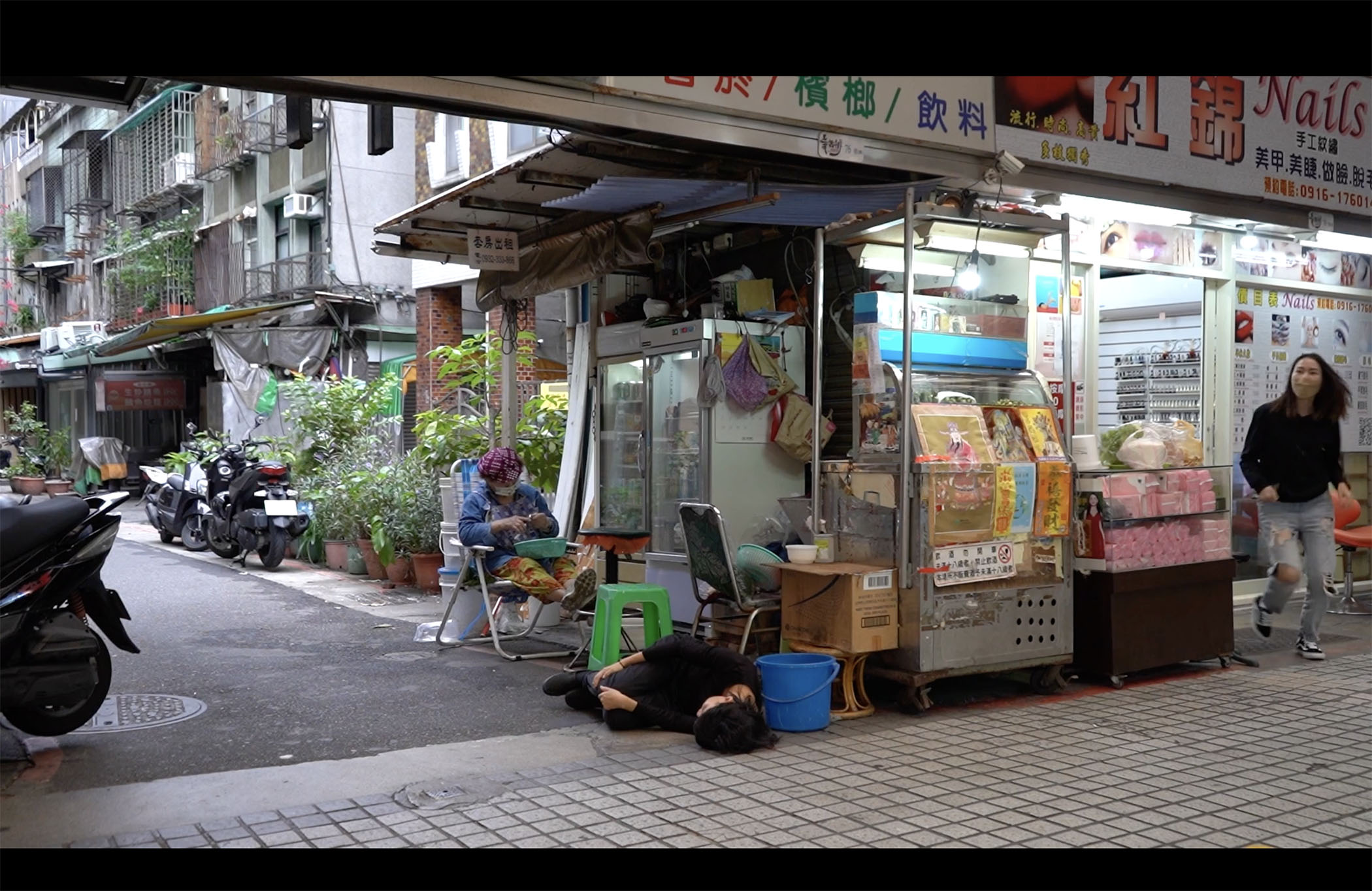
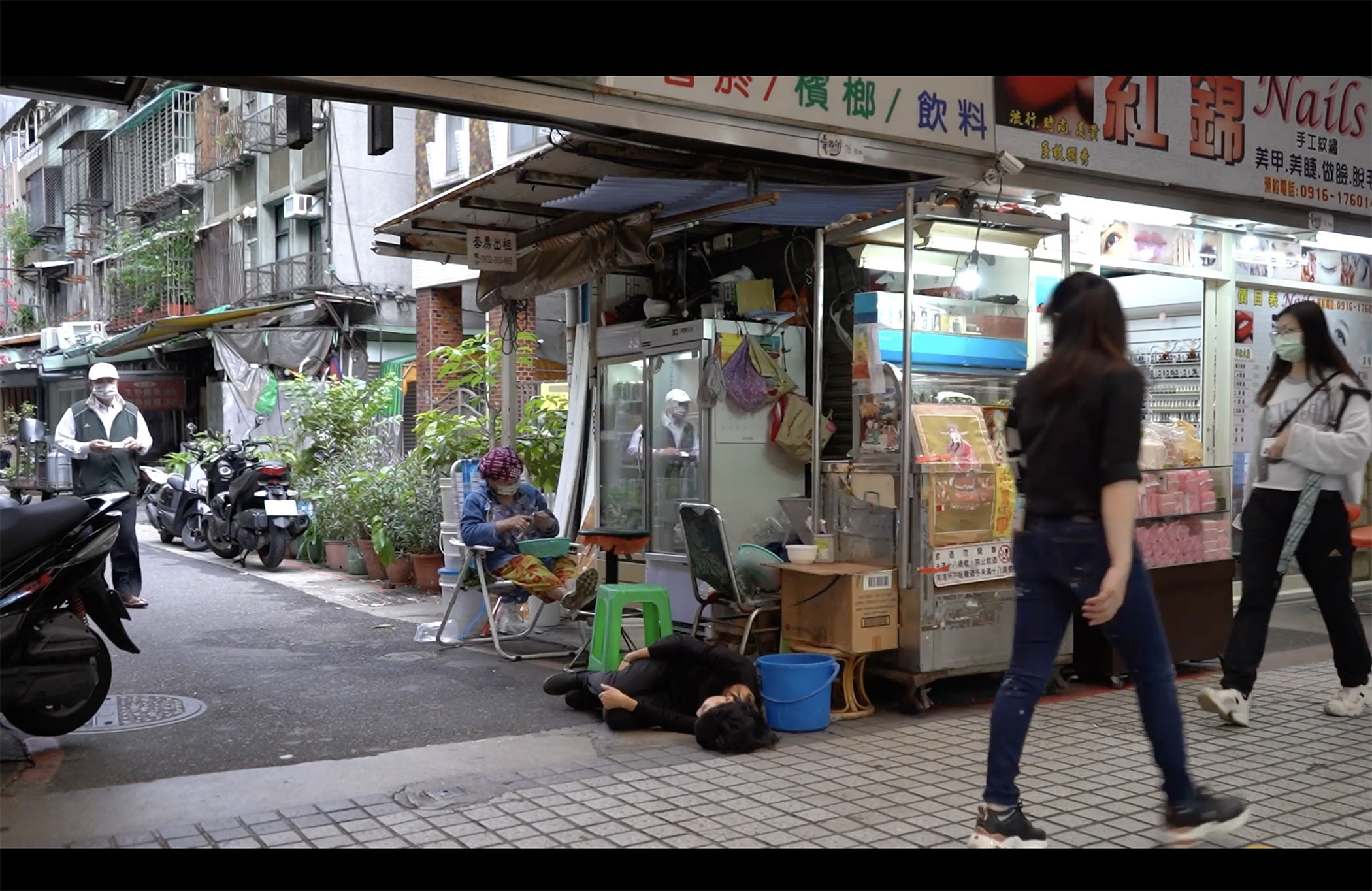

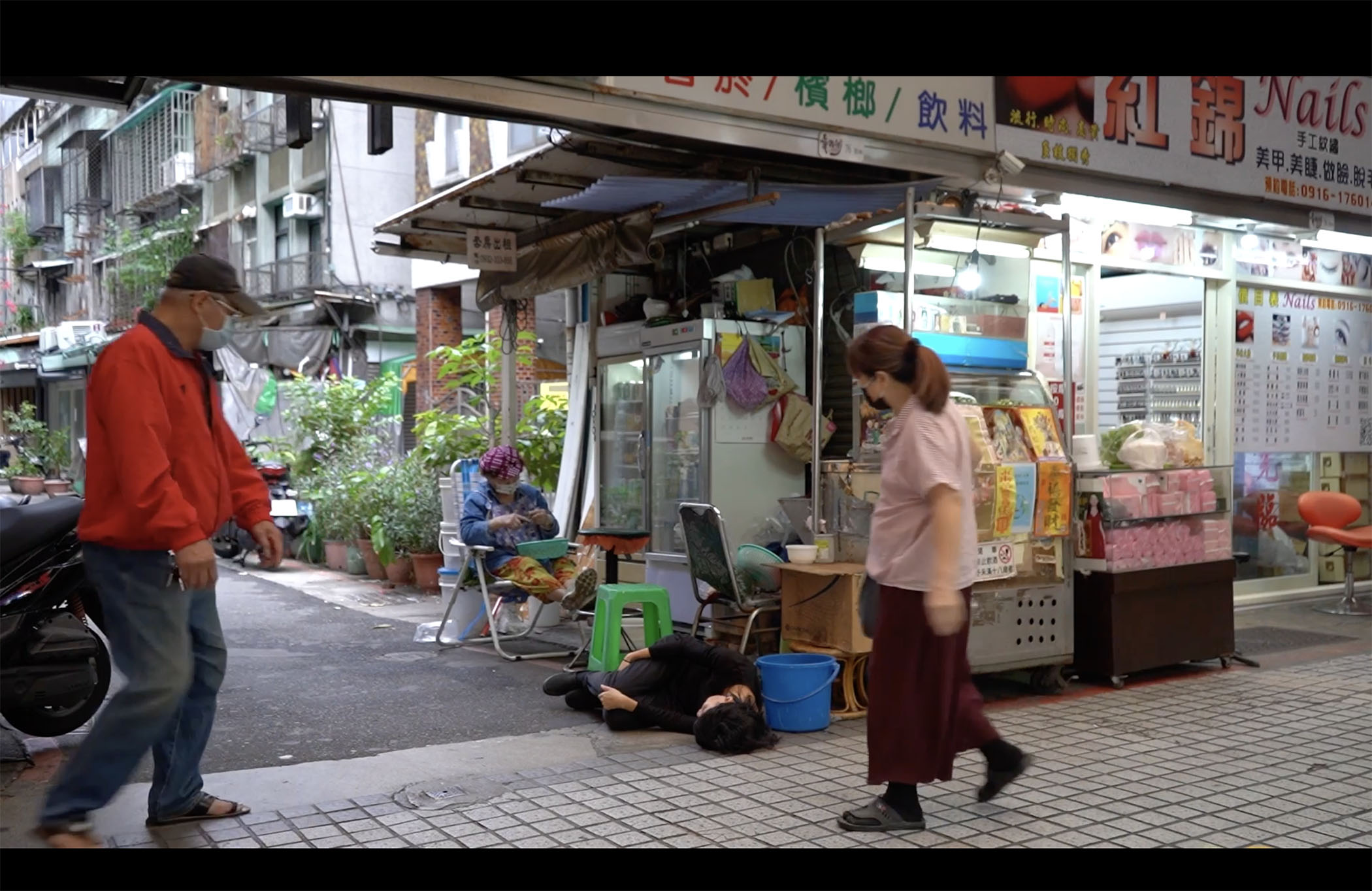
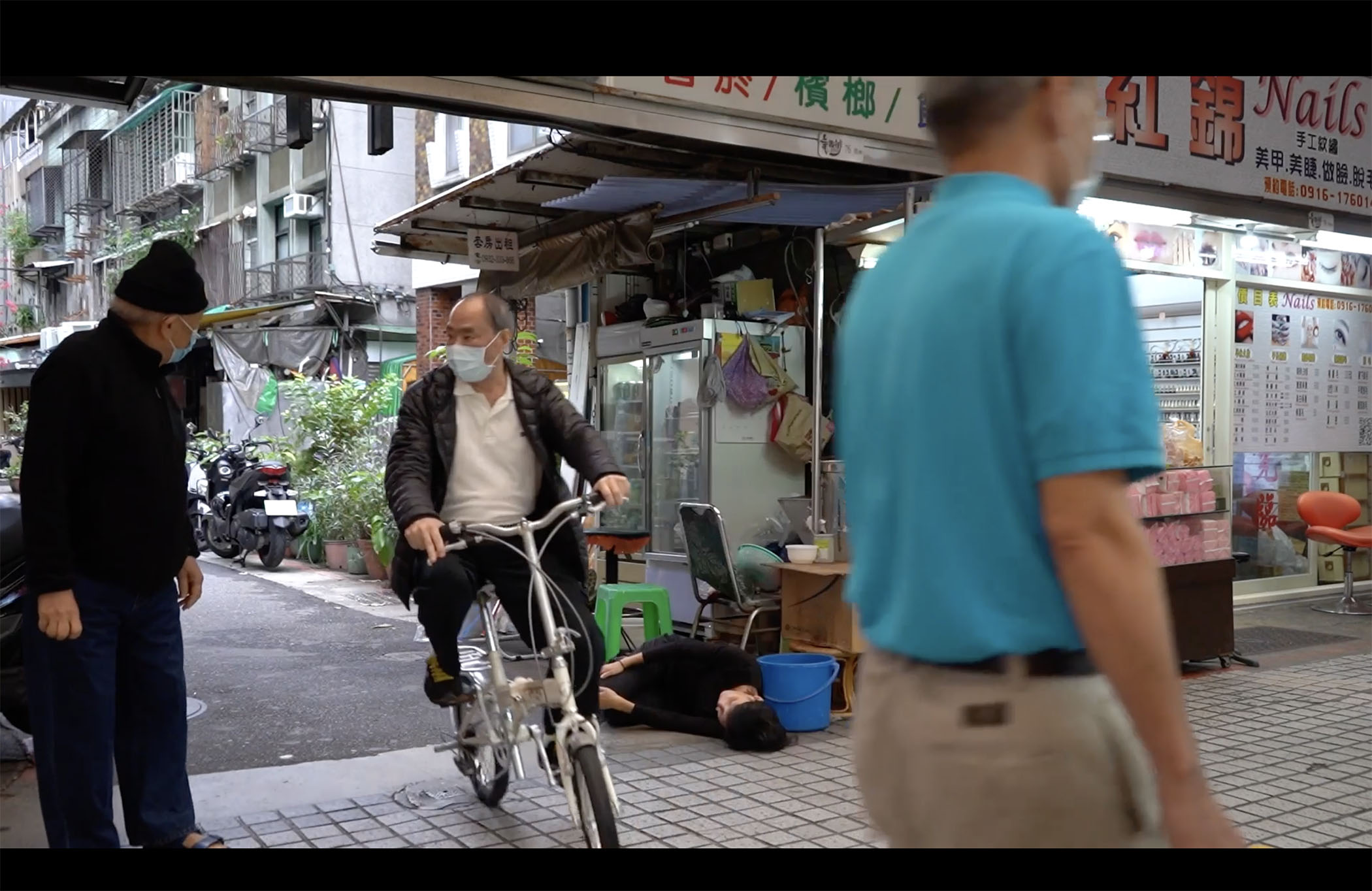
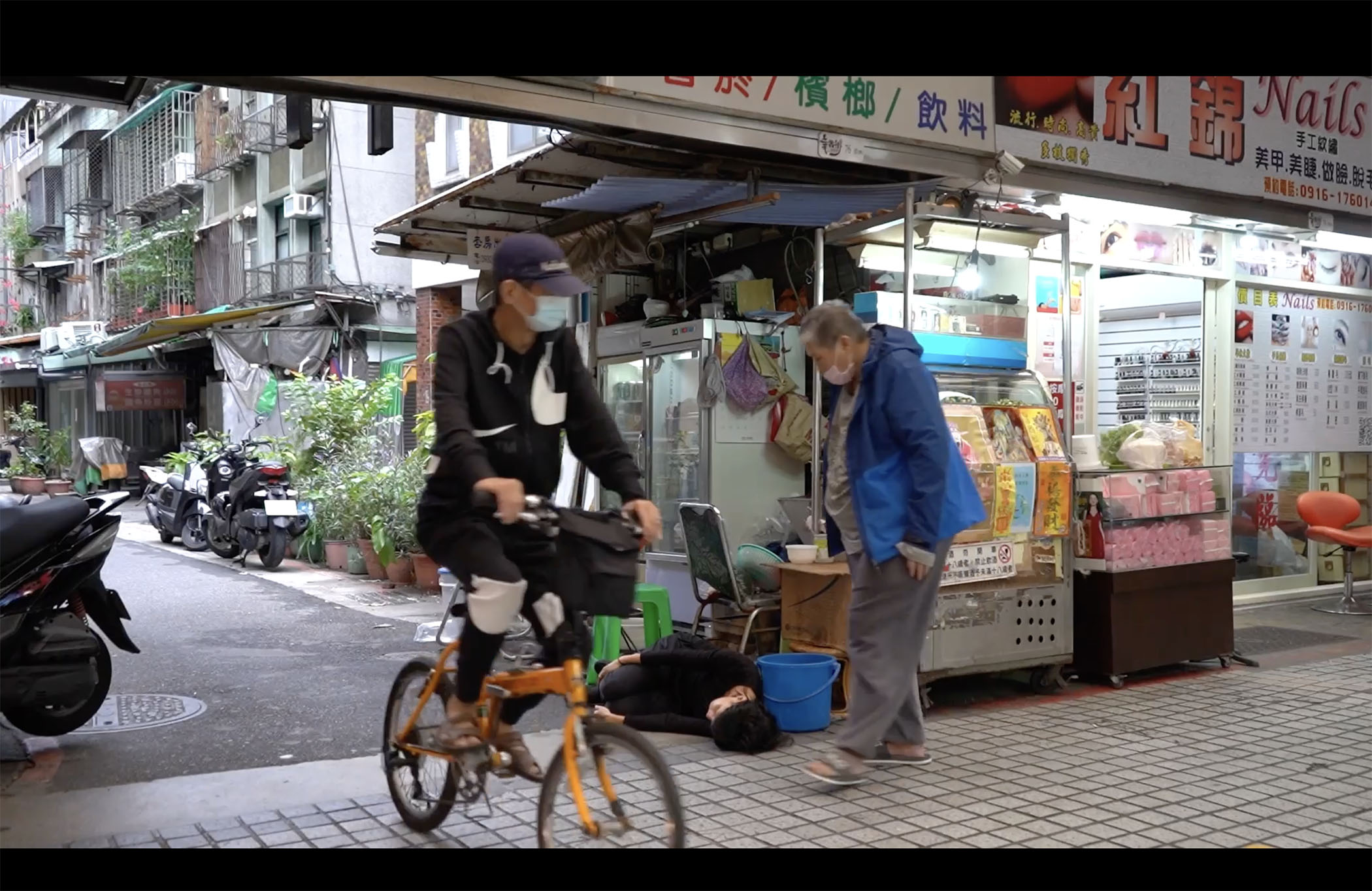
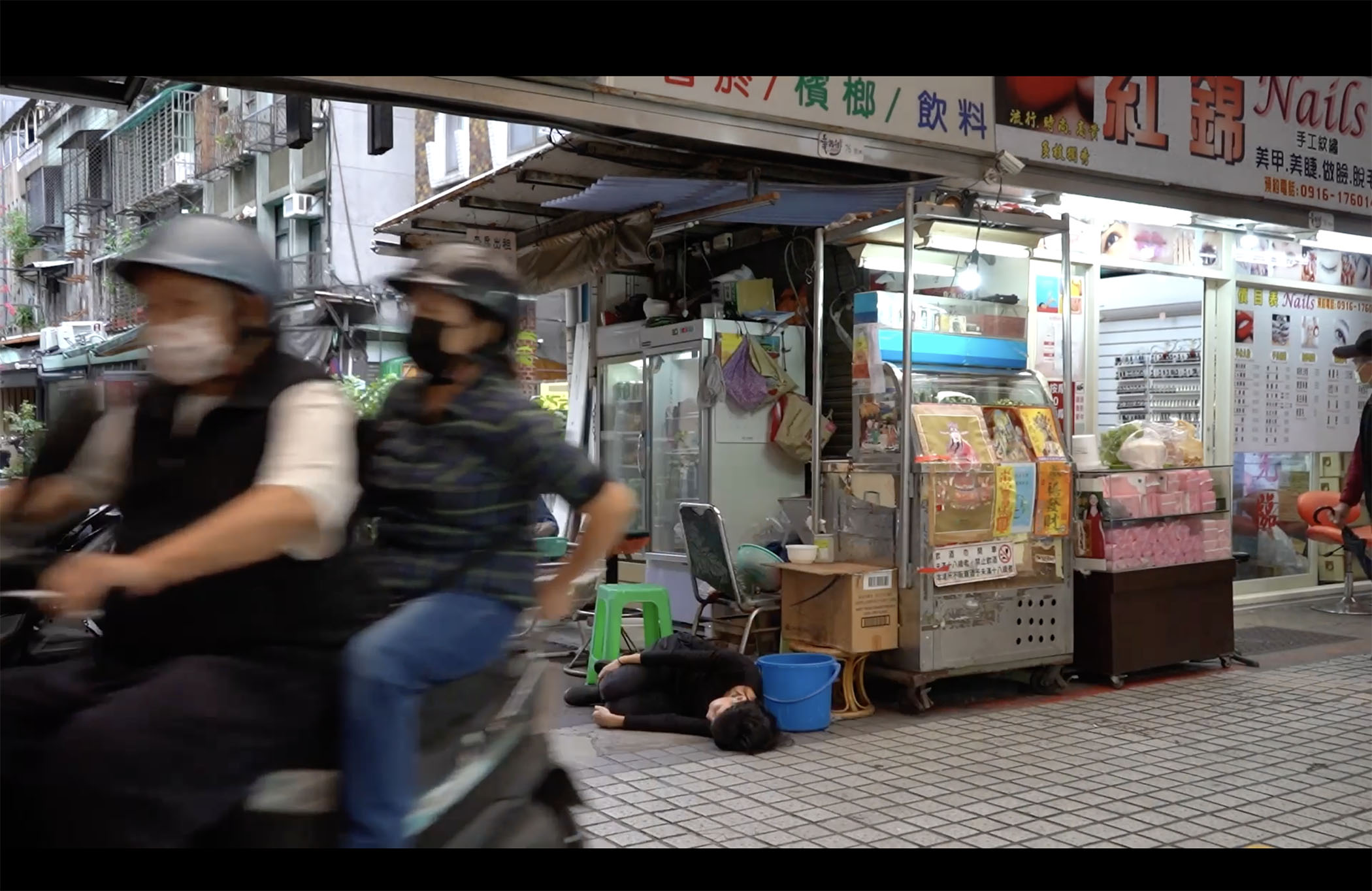
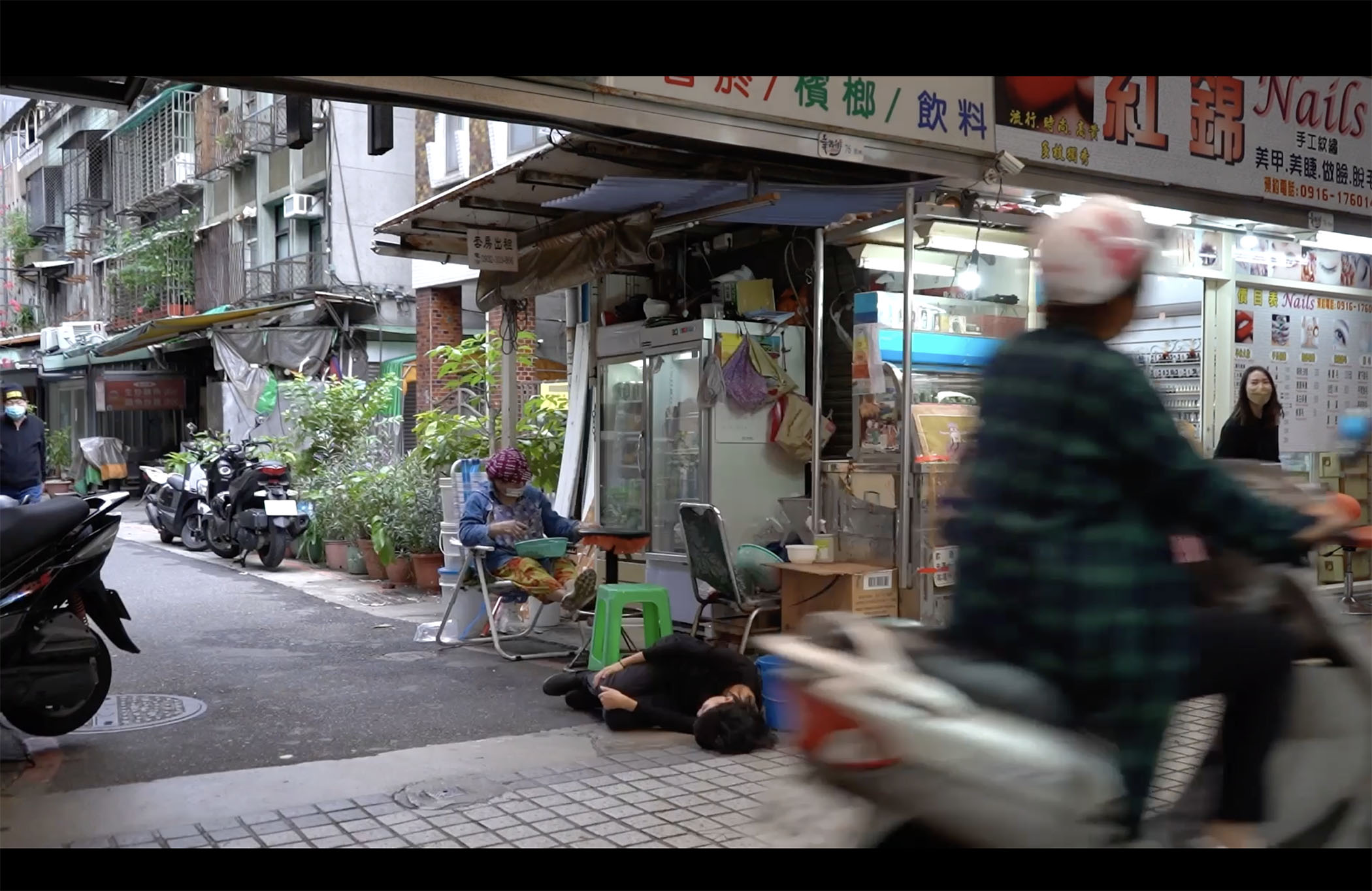
Performance video stills, 2021